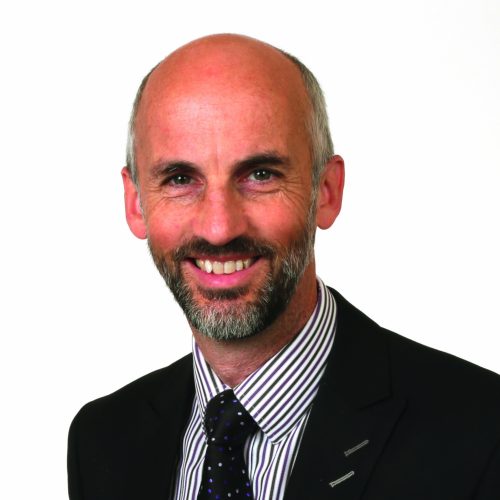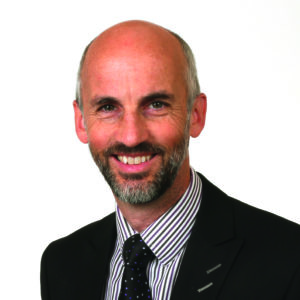
Simon Stocks is Senior Tutor and tutor for Biblical Studies at St Augustine’s. We asked him to tell us a little about himself and what his role at St Augustine’s College of Theology offers to our students.
I’m from Manchester and a lifelong Manchester Utd supporter. I’ve also always been a keen runner, and have done the odd half-marathon, though age is catching up with me. My practical and problem-solving bent means that I spend my spare time on DIY and building projects, and when quieter moments are called for, crosswords.
Like many of our students here, my career began outside the Church, with a degree in Engineering. I qualified as a chartered civil engineer and spent 12 years working in industry; mostly major railway schemes, the most significant of which was the time I spent running the design team for the Maidstone section of the high speed link to the Channel Tunnel.
As part of that I was doing public consultations, liaising with parish councils and attending public meetings. When I stood up to introduce myself I’d often get quite a reaction, and could never work out why. It was only several years later that I discovered that St Simon Stock is a quite well-known figure around Maidstone.
Some of our students talk about quite dramatic life events which led to them recognising their calling, but, for me, the change of direction from engineering to ordination was fairly pragmatic. I was always very involved in my local church, and our vicar encouraged capable people to get involved, lead services, and preach under his supervision.
At a point where I felt I was overstretching my capabilities, I started looking into ways to get some theological training. I imagined that it would be part-time alongside my engineering career, but it ended up with my seriously entertaining the suggestion that I get ordained.
Well, I thought, I might as well give myself the opportunity to focus on ministry.
I felt that with three young children at home, a demanding career, and church responsibilities, I might end up doing three things badly. Instead, I wanted to do two things well – and dropping the family wasn’t an option!
Even so, as I went through the discernment process I wondered if my reasons were too pragmatic – that I would be expected to have a stronger spiritual sense of ‘calling’.
So it was slightly to my surprise that I found myself handing in my notice at work and heading off to Trinity College, Bristol, for three years’ residential training.
Although I’m a big fan of non-residential training for many reasons, residential was a natural environment for me. It worked well for my family too, as I was working shorter days than I’d been used to in engineering, and they enjoyed the college community.
All too soon, my three years were up and we moved back to London so I could take up my curacy in Southwark Diocese, my sponsors through my ordination training. Then it was time to think about what came next.
I’d always been attracted to teaching, and had taken opportunities to teach during my curacy, teaching Hebrew and running diocesan training days. When the time came to decide on my long-term future I felt I’d be of most use to the Church in a full-time teaching role.
In Biblical Studies, most people teaching had PhDs, so that was the natural next step. I stayed on in my parish as a non-stipendiary minister while I completed a PhD exploring aspects of Hebrew poetry. This was carried out through Cliff College in Derbyshire, accredited by the University of Manchester, but I only went there occasionally; we remained in our south London home.
It was always my plan to teach in a theological college, and towards the end of my doctorate I took on various part-time teaching roles: on the diocesan Reader training course, at London School of Theology, and at St Augustine’s (then SEITE). Just as I finished my PhD, the Biblical Studies tutor at St Augustine’s moved on, and I was delighted to be appointed to a full-time role in his place.
That summer, Canterbury Diocese came to us and asked us to take on its Reader Training provision. That was a new area for us, and with my experience on the Southwark Diocese Reader training programme, I took on the responsibility to oversee and develop it. I carried that role, adding Southwark in 2012 and Chichester in 2014, until 2018.
Today, as Senior Tutor, I oversee the ordained ministry pathway as well as tutoring in Biblical Studies.
What St Augustine’s brings to theological study and formation.
I think one of our greatest strengths is the diversity of backgrounds and traditions of our students and staff which opens up new perspectives and enables us to learn from one another. It’s very healthy to learn about traditions new to you from people who are actively embedded in them, rather than as abstract concepts. Sharing lived experience of faith is immensely valuable.
Because all our students remain living their normal everyday lives in their own contexts, there is an emphasis on formation as the whole of life. It’s not something you do at a certain time or place. It’s what happens when you live your life in a certain way: that pays attention to who you are. The opportunities for development are all around us and are the stuff of life. You don’t’ need to go out and look for it, it comes to you.


